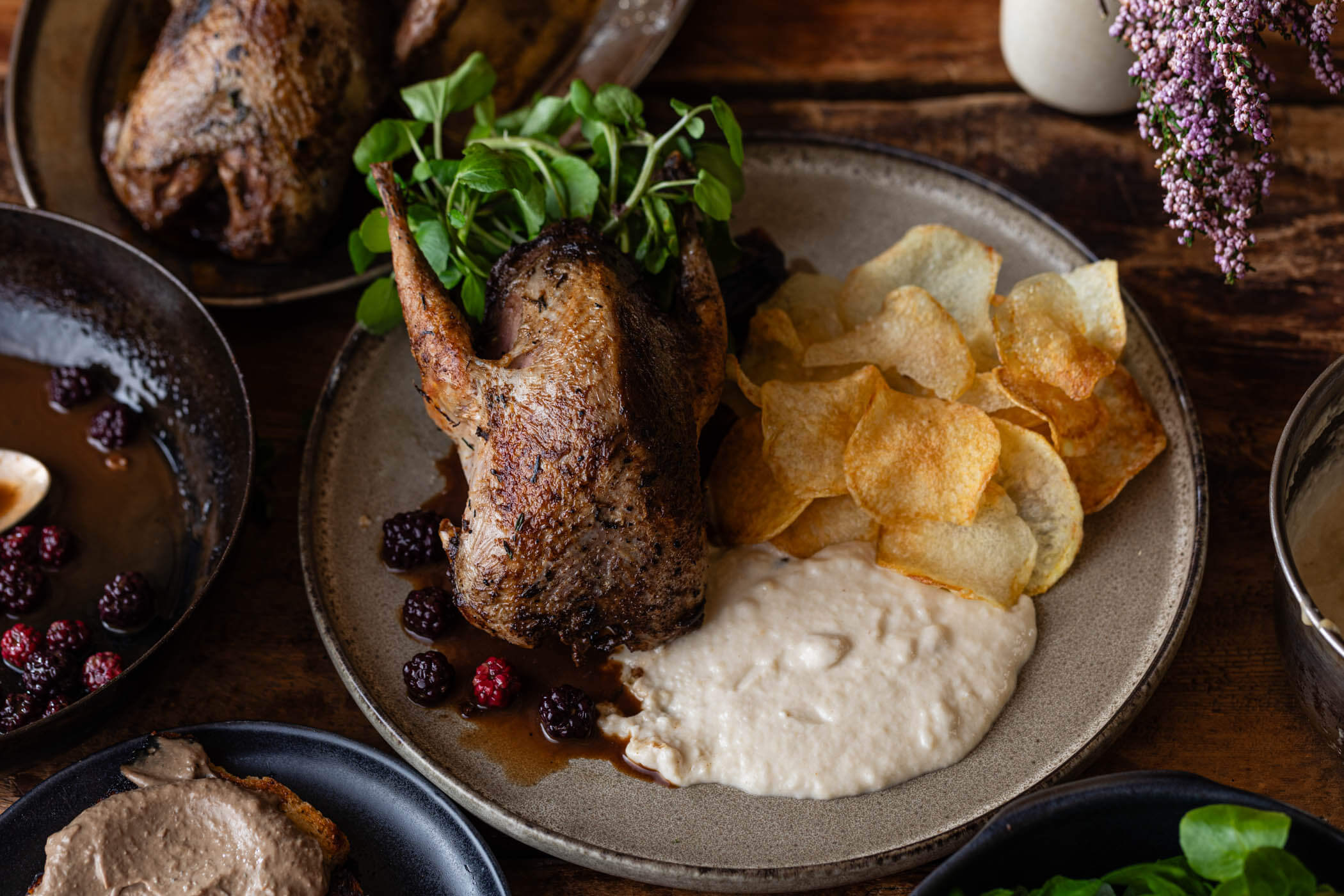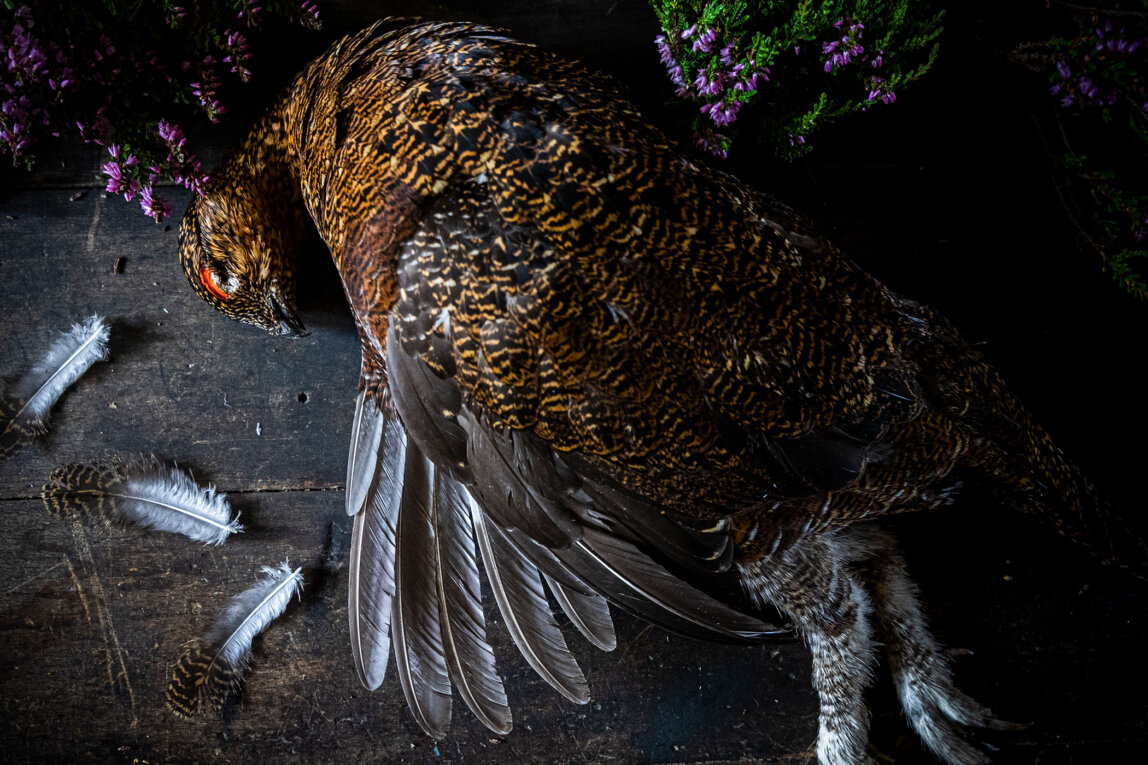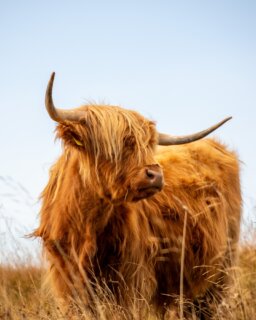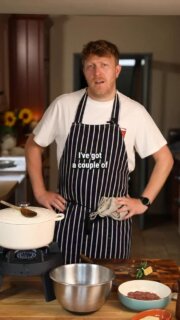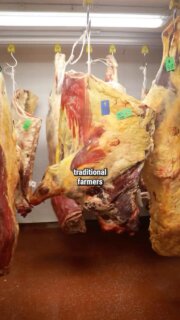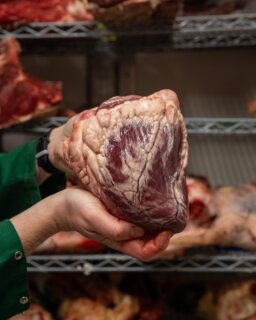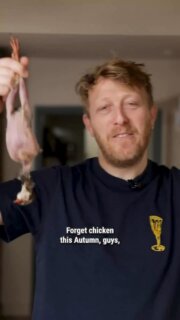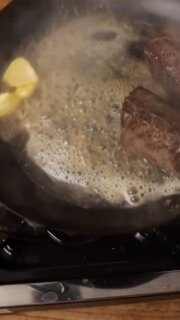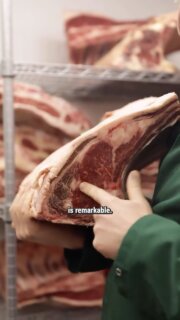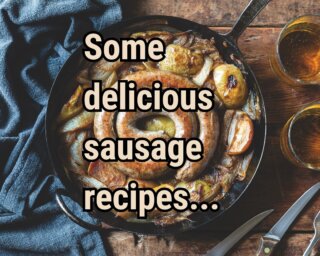Why Eat Game Meat? A Guide to Wild Meat & Ethical Shooting: Spending most of my early life growing up in the countryside, on a dairy farm in 1970s Dorset and then the Berkshire Downs, it was not wholly unsurprising that I came to enjoy hunting and fishing. The latter has become an all-consuming passion when I’m not at the stove. My father was forever picking rosehips for cough syrup or racing lawyer’s wigs homewards before they turned to ink in his pockets rather than on toast. He animated nature with stories and taught me to fall in love with the outdoors, its creatures, deities, hidden secrets and delicious treats. My mother was an endlessly inventive and clever cook, able to conjure up continuous wonders whether the fridge was seemingly empty or full. And so, with a very young, mad keen interest in food I soon learned to view the outdoors, cultivated or wild, in terms of either edible or inedible. In fact I’d go as far as to say that I continue to view the whole world, and even people, under this distinction.
While my father, born in 1918, lost his taste for shooting due to serving in the second war, he nonetheless did not disapprove of me doing it. Giving me his old gun and split cane rods, he taught me the absolute rule of law, “If you kill it, you eat it!”
I remember that sense of finality, those complicated feelings of guilt and grief when that first pigeon tumbled into a hedge, and the first poor rockling was pulled up from the sea wall. I recall cooking and enjoying them both. Holding that lifeless quarry, living only minutes before, owned a sadness I came to realise actually drove my desire to use it properly and respectfully, do something worthy with it, and make it delicious.
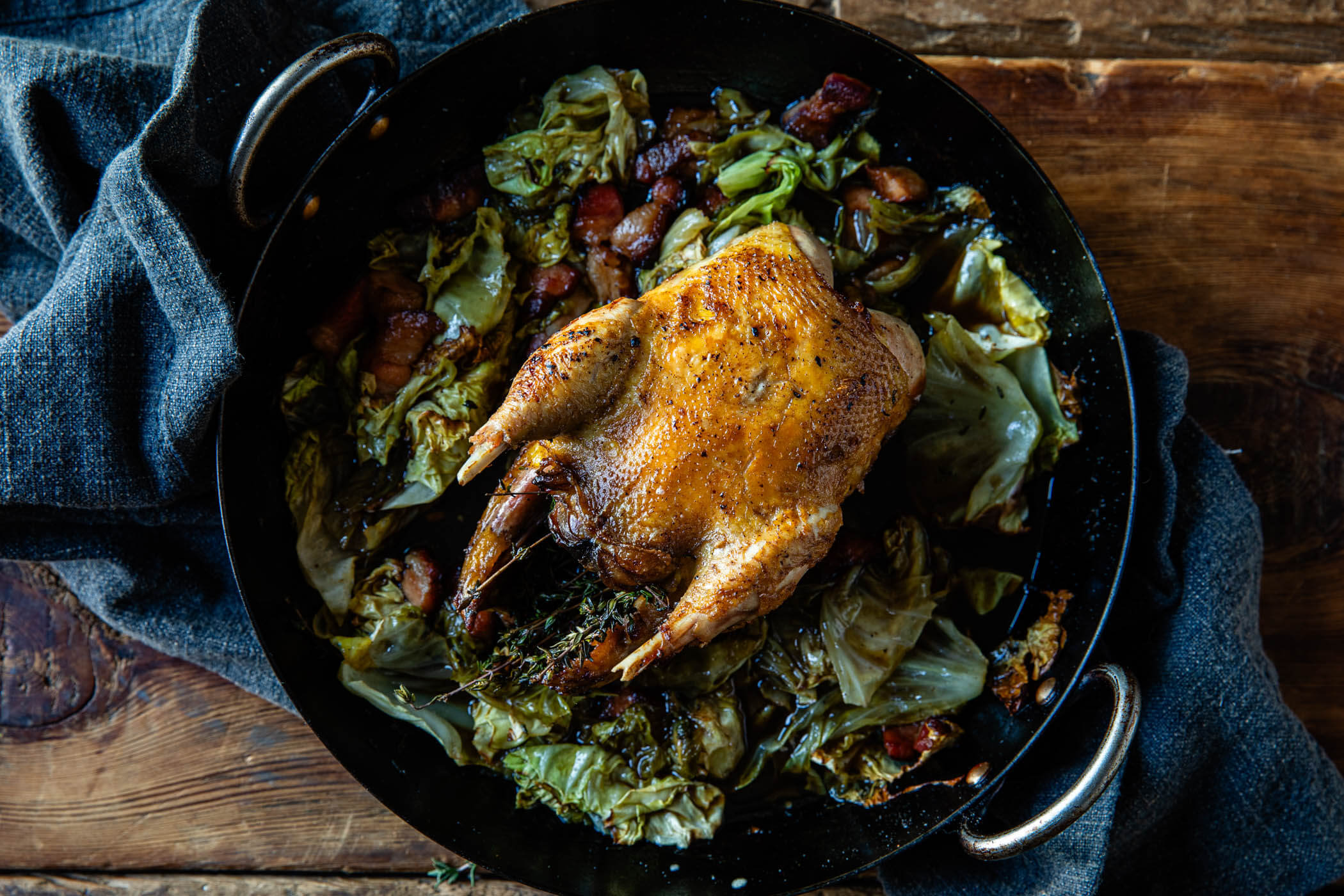
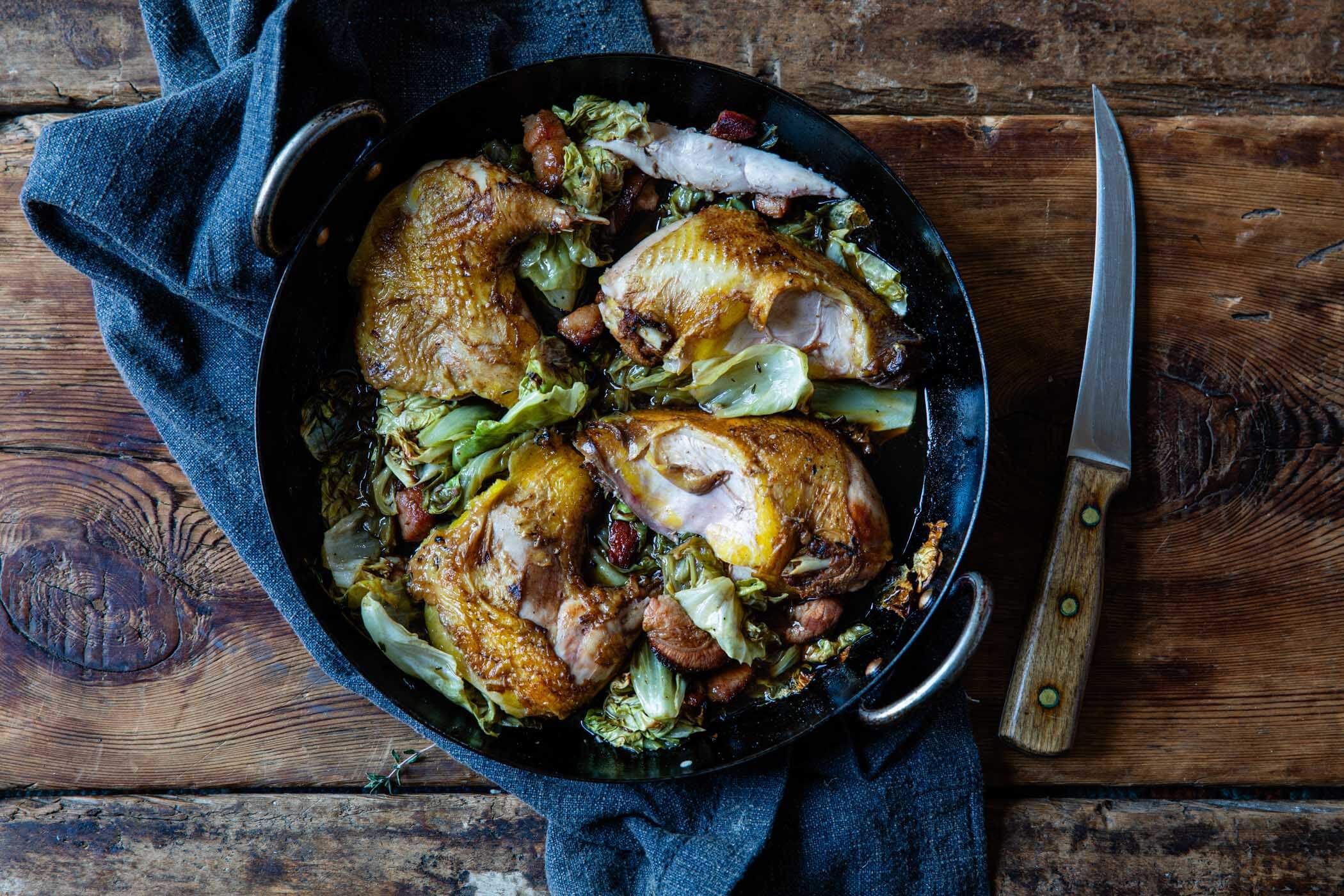
Game, fish, and foraging have become integral to my own way of cooking, my interpretation on the plate of the landscape around me. A cooking perhaps more akin to the food of years ago and long before we became a supermarket nation.
In short, I’ve learnt to understand a lot of the world by tasting it, sometimes unwisely and so here I stand as a 49 year old who feels that ‘surely it is better to know when you are standing next to a cobnut tree or horseradish than not’? My field guides are as important as my cookbooks, the rod and gun kitchen utensils I simply regard as extensions of the whisk and spoon. To go out into nature is my human instinct, and to hopefully return indoors with a wondrous bounty thrills me.
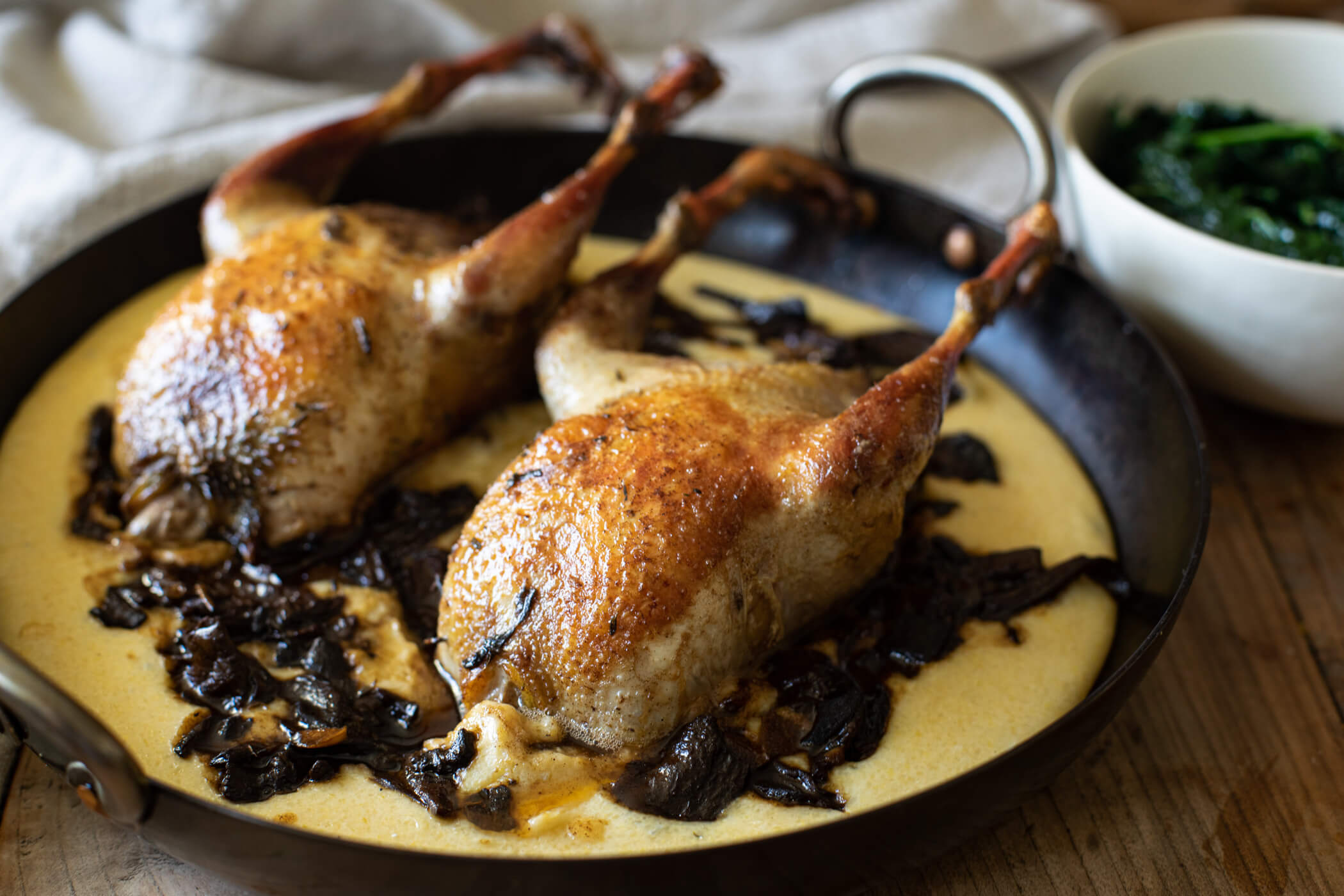
I am happily working alongside Swaledale Butchers as I believe they have a similar respect for the ingredients they handle as I do. I genuinely believe they are ‘passionate’, a word used too often and not applicable to all who use it. Swaledale encourages me to have my say, hunt, gather and cook from the heart; we are aligned in our views and ethos.
Game is a treat to be savoured. Pigeon on toast with the very black currants it’s been stealing, a roasted mallard with split peas and bacon, the warming comfort of rabbit pie or venison tacos with a deep ancho sauce, yes, these are treats to be eaten slowly and consciously, not rushed in grazing haste. These are wild meats of exquisite and rarified taste.
To change tack now, and a little on the complicated subject of finding joy in hunting.
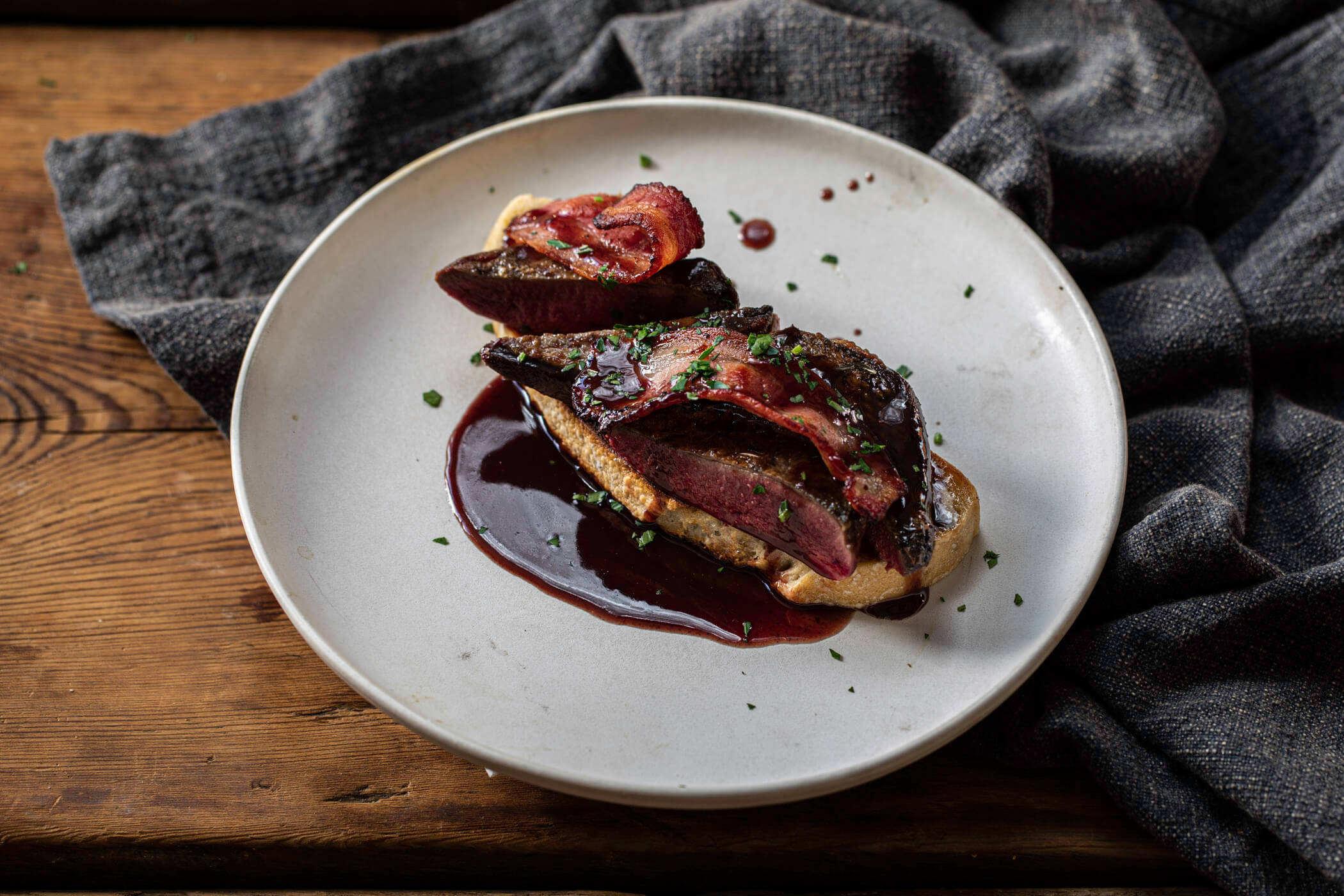
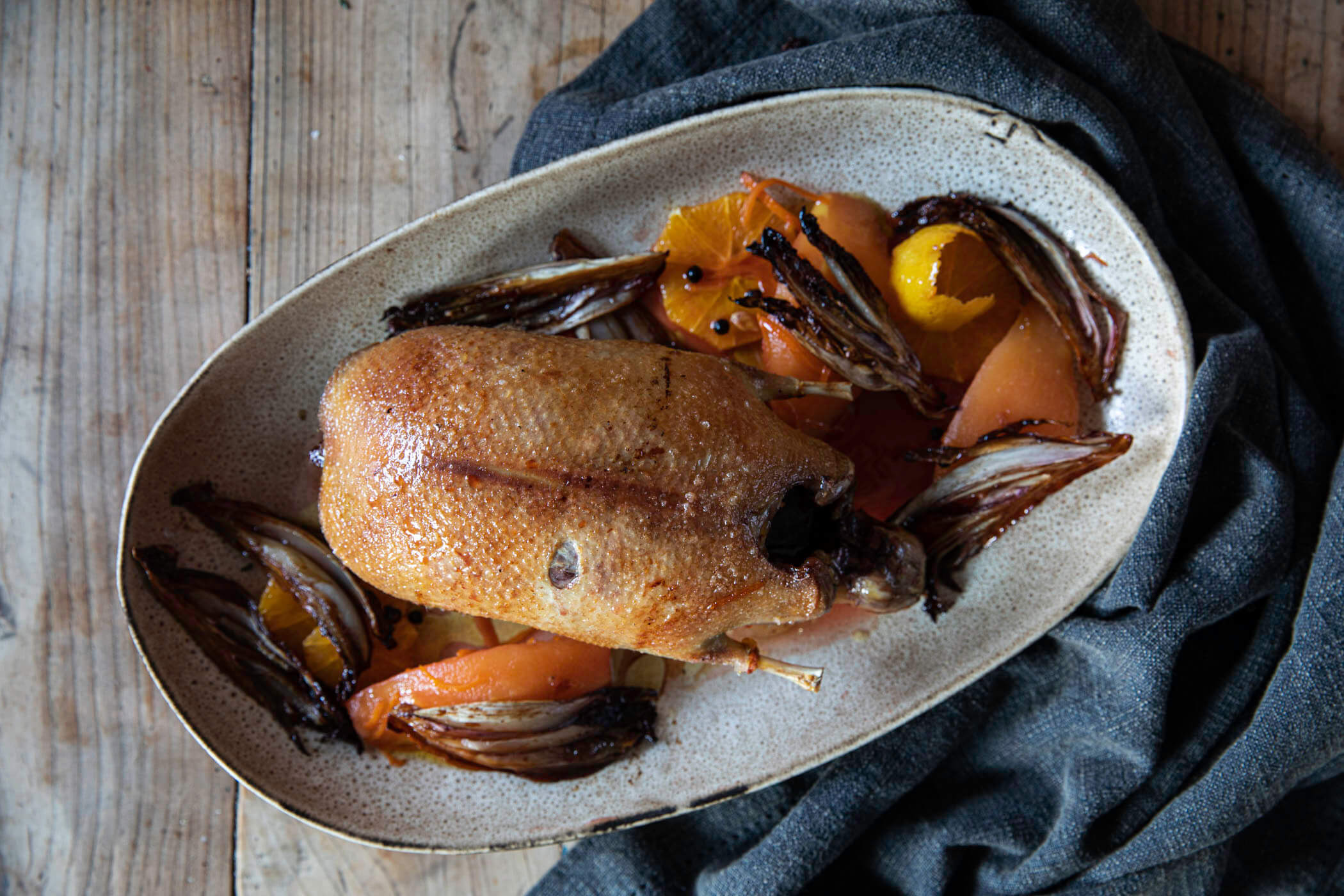
While some obsessively collect Instagram followers, perhaps sneakers or even sports cars, I believe for this very reason we are all still hunter gatherers in one way or another. An ancient coding, buried deep in our marrow but with the focus perhaps now directed elsewhere. This coding has been integral to our survival for thousands of years and cannot simply be dismissed as a result of vastly increased convenience. I’m an analogue, visceral and feral soul, and I guess this old knowledge just courses closer to the surface of my skin.
When I hunt I would not say those feelings of happy success signify a love of killing. No! They signify an ancient understanding, a joy that one’s survival has been extended with meat to be shared among the wider family or group. It’s a beautiful thing to watch a dog and man hunt side by side, their actions become synchronised, their breathing, their stops, crouches and advances. Ask anyone to stalk something and the changes in movement are automatic. When released from this concentrated pursuit, it’s the release of endorphins post capture that brings this ‘joy’ that is often so hard to explain. ‘Ancient automatic’, that in my case puts food on the table, special food I know far more about than most of my supermarket choices.
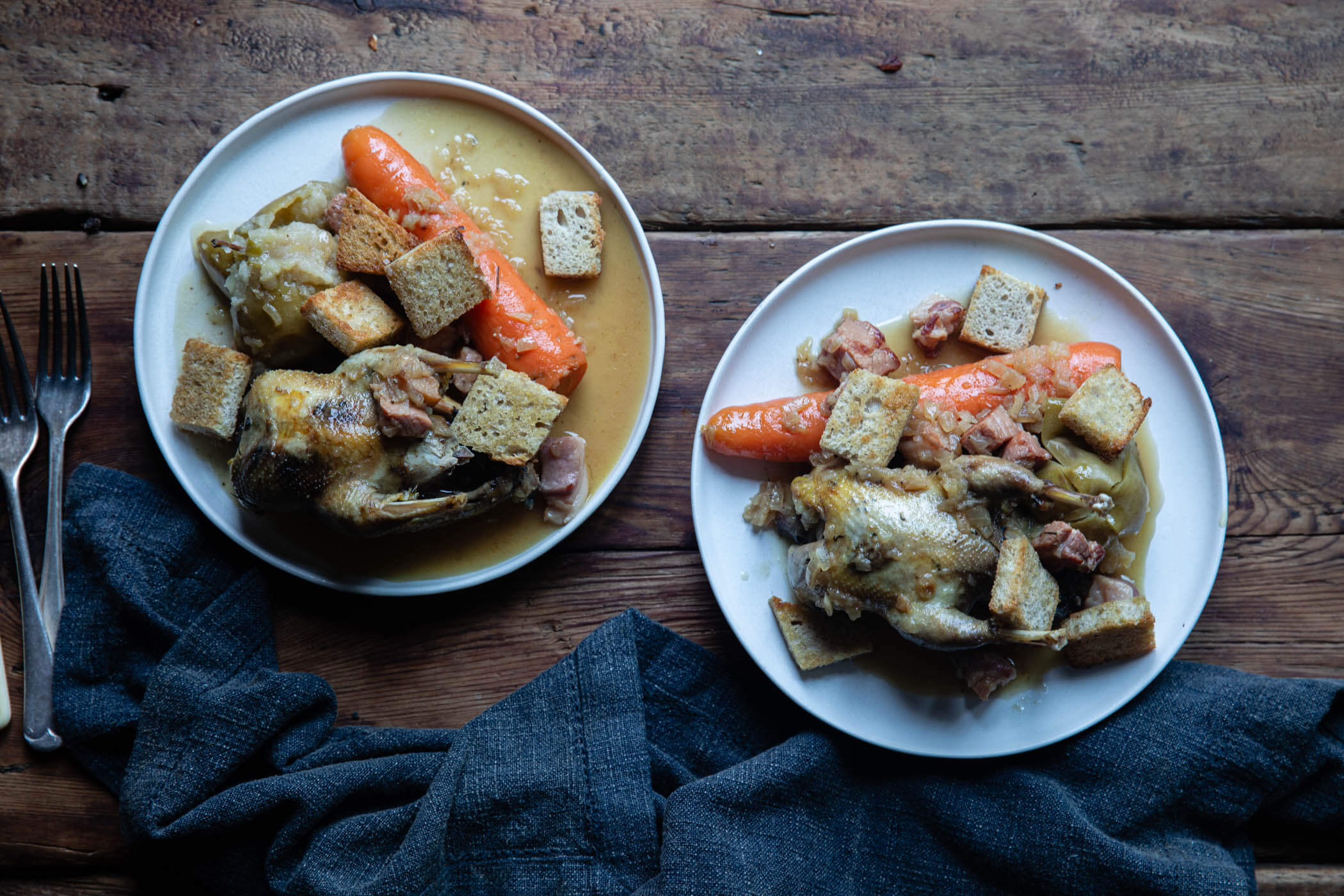
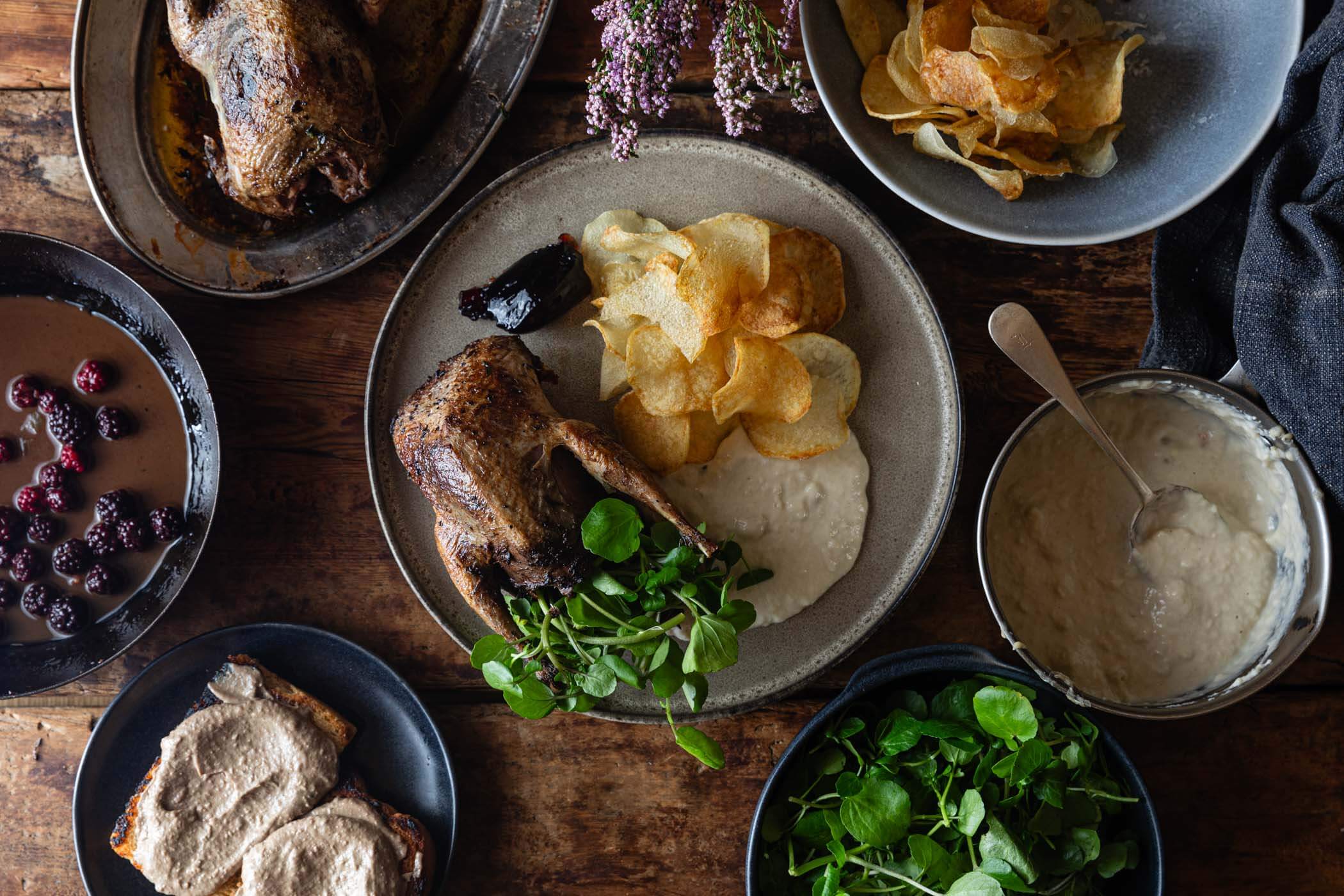
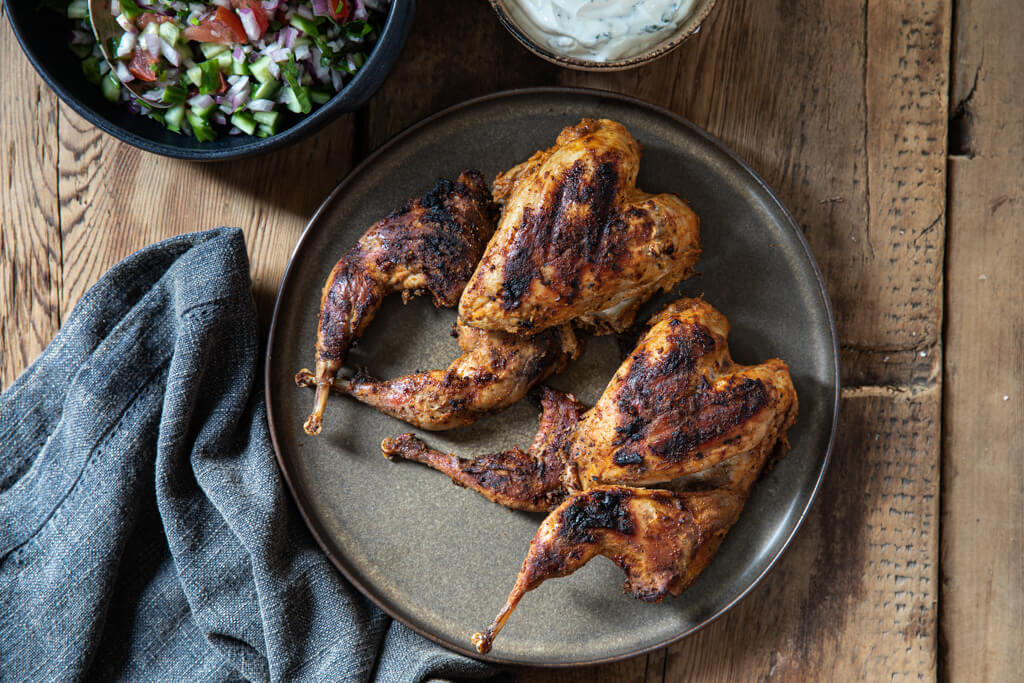
Even if these days survival has little to do with it, (I don’t need to hunt to live) I prefer to have a hand in as much of the meat on my table as is possible. Whether farmer or hunter, provenance is important and to be respected.
Remember that food has only become ‘easy’ very recently. None of the more remote populations across the globe I’ve ever filmed, or spent time with, would ever waste a scrap of what they hunt. Like them I want to understand and become one with my landscape, the habits of animals, the rhythms of nature, and know how to prepare and feed myself too.
I’m an omnivore, but eating game involves killing, so for me it is imperative that a life taken is a life respected. I made a decision to stop shooting driven game, for that’s not a death by nature’s design. The arguments are more complicated than ever, especially today, but it’s important to stick to your convictions.
Most crucial in these modern times is to try and understand when not to eat something and this really comes down to awareness and personal choice. For example, while some parts of England still see healthy populations of brown hares in other parts they have all but disappeared. In such cases then it is up to the individual to make a call. I do not shoot them now as I have had some odd experiences and believe they know secrets we’d be better off knowing but shouldn’t be told. I do still eat them occasionally, but only if a plate is set before me or I’m given a hare.
In cases such as the blackcock, a species once found from the south to the north of the country, they have all but vanished and now, I feel, should be protected.
Snipe, woodcock and golden plover I also no longer lift a gun to, as while I have loved to eat them cannot ignore that I’ve seen far less of them over recent years. Their natural habitat is under threat and their numbers are in decline, and so again while I make my own choices, it is for others to do the same. I hopefully await the time that these birds are taken off the list of legal game. I would add though that because these birds are less fashionable to eat now, and rarely if ever seen even in a butcher’s shop, this can only be a good thing.
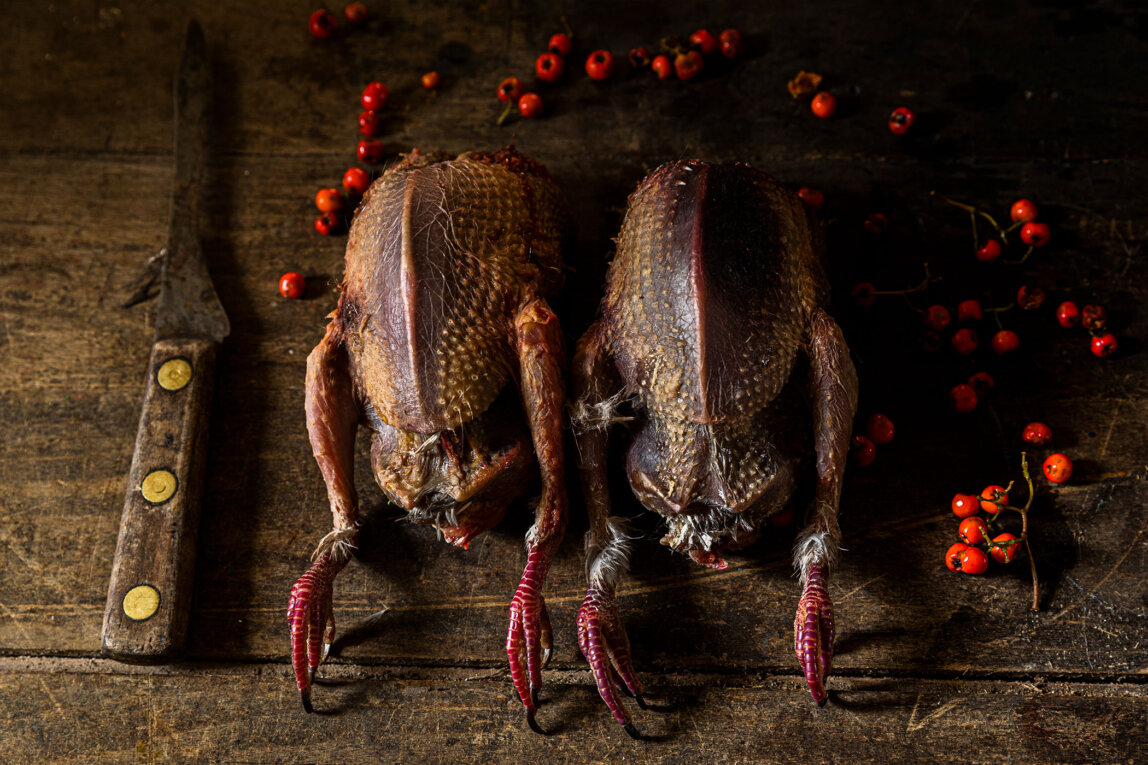
As already stated, I’ve stopped shooting driven game, as I believe that to hunt ethically my quarry should have every possible chance of avoiding me. So I now only rough shoot pheasant and partridge, it seems only fair. However as long as driven shooting continues, one can only hope that the birds are eaten so that the killing is not in vain. That any game simply be shot and disposed of is immoral and will only be-smudge the reputation of such a pursuit (already under close scrutiny) that if tightly controlled, respected and taken seriously could continue to provide fine food. Outside of these issues, partridge and pheasant are delicious and plentiful and I only hope that more people will come to appreciate them.
There are a lot of wild deer in Britain. I don’t eat them to help reduce road incidents or because I feel sorry for farmers, I eat them because they are presently plentiful and a good source of healthy meat.
The wild Britain we once knew is a notion long gone. The protection, release and management of nature today, seems to be approached like the dials and levels on a large music mixing desk, operated by squabbling producers who don’t really know how to use it and never will. So while enjoying game is to be encouraged, we do need to be aware and make our choices carefully. I eat a lot of game and hope the provenance may lead you to a joyful plate of the most delicious flavours, and an equally joyful understanding of the beautiful places and animals this treasure comes from.
